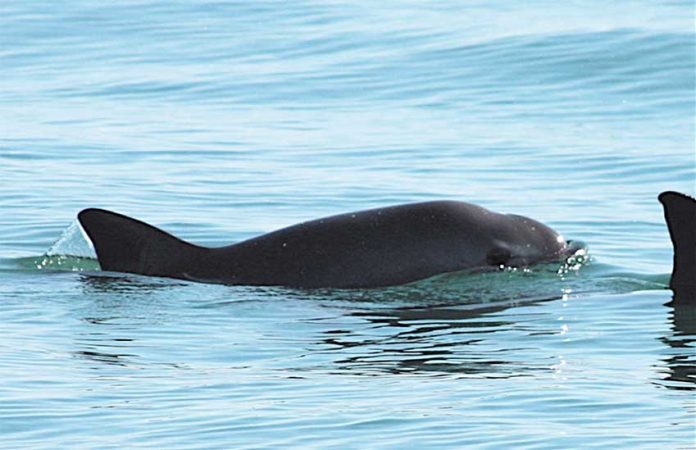The federal government has announced that it will strengthen the fight against illegal fishing and use buoys to mark the reserve of the vaquita porpoise as part of a new strategy to protect the highly-endangered mammal from extinction.
The secretariats of the Environment (Semarnat) and Agriculture (Sader) said in a joint statement that the aim of the initiative is to “create conditions of environmental, social and economic sustainability” in the upper Gulf of California.
Scientists estimate that only 10 vaquita marinas likely remain in the upper gulf, the only place in the world the species lives.
Semarnat and Sader pledged to provide social programs and jobs for fishing communities in the region such as San Felipe, Baja California, and Santa Clara, Sonora, and said the rule of law will be strengthened “to avoid the illegal fishing and trafficking of totoaba.”
Vaquitas often die after becoming entangled in gillnets that are used to catch the totoaba, whose swim bladder is considered a delicacy in China and can yield high prices.
The two secretariats said that tourism, fish farms and better fishing practices – including the use of vaquita-safe nets – would be encouraged. One thousand marines will be deployed to carry out patrols of the vaquita reserve.
Environment Secretary Josefa González Blanco told a press conference yesterday that the government will also stop paying compensation to fishermen, a scheme introduced by the previous administration after gillnets were banned in 2015.
“The strategy adopted previously hasn’t been effective and the problem [of vaquitas dying] has obviously become worse,” she said.
“The initiative we’re presenting today tackles the problem in a comprehensive way . . .” González added.
However, environmentalists said there were insufficient details in the government’s strategy and that more urgent measures are needed to save the critically-endangered vaquita.
“With 10 vaquitas left, what is needed is total protection and the immediate elimination of illegal nets from the vaquita’s habitat,” said Alejandro Olivera, Mexico representative for the Center for Biological Diversity.
The plan to mark the vaquita reserve with buoys falls short of a proposal from activists to build a floating barrier to keep boats out.
Totoaba fisherman have continued to fish in the reserve even though they know very well where it starts, the Associated Press said.
Lorenzo García Carillo, president of a fishermen’s association in San Felipe, criticized the government’s new initiative, charging that fishermen weren’t consulted about it and that it doesn’t satisfy their needs.
He said that fishermen plan to fish this weekend, highlighting that they haven’t been paid any government compensation since the new government took office.
“The projects they have . . . we don’t know how long they will take to start. I understand that there are aquaculture projects but how long is it going to take for them to start working and to produce?”
Source: Milenio (sp), Associated Press (en), La Crónica (sp)
